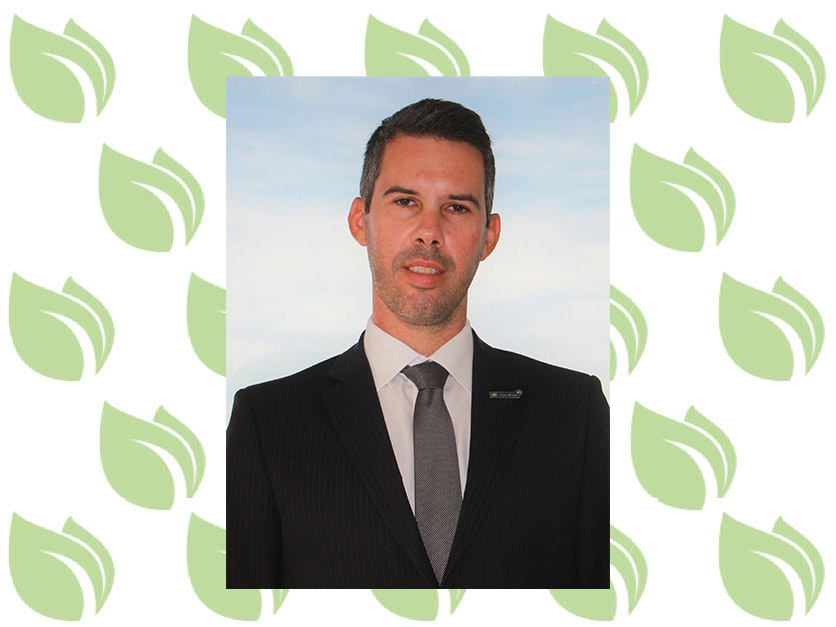The UN Food and Argiculture Organization (FAO) estimates we will need to produce 70% more food by 2050 to feed the growing world population. It remains paramount food producers work toward the U.N. Sustainable Development Goal of ensuring access to safe, nutritious, and sufficient food for all people all year round. Yet, progress reports continue to highlight this will be a challenge, with 720 and 811 million people facing hunger in 2020 alone.
Brazil and the U.S. are both major contributors to the global food production chain – and the two countries have strong history of working together in the sector, which has laid the groundwork to solve these challenges in the future. Considering the influence of these nations on the global food system – Brazil alone is the second largest food and agriculture supplier and is projected to contribute 40% of global production by 2050 – there is an opportunity for Brazilian and U.S. innovations to create a high-yield, sustainable food supply chain for many decades to come.
Partnerships can help feed the world
While the two countries will absolutely continue working together in the future, the U.S. and Brazil can’t feed the world alone. Fortunately, leaders in the farming and agribusiness sector recognize the power of strong ecosystems too. Recently formed partnerships between the U.S., Brazil and other countries aim to solve issues with food distribution, cross-border trade, and scientific development.
For example, the U.S. Department of Agriculture (USDA) and Brazil’s Ministry of Agriculture, Livestock, and Food Supply (MAPA) met several times in recent years to identify and develop cooperative solutions. At the High Level Working Group to Promote Cooperation and Coordination (HLCCWG) meeting in 2020, the USDA and MAPA convened a bilateral discussion about the most pressing challenges faced by agriculture growers and, of utmost importance, opportunities to collaborate on research in the industry. USDA and MAPA held an additional HLBWG meeting in June of 2021 to discuss the latest developments in agricultural technology.
The U.S. and Brazil are also key founding members of The Coalition on Sustainable Productivity Growth for Food Security and Resource Conservation (SPG). Enabled by the partnership of over 50 countries and organizations, SPG aims to accelerate the transition toward more sustainable food systems and improved productivity.
These efforts mark the most recent initiatives in a long history of cooperation between Brazil and the U.S. Beginning in the 1960s – when the USDA worked with Brazilian research firm Embrapa to improve soy farming techniques – and moving into the modern era – as the countries collaborate on research and development, policy changes to enable a better trade climate, and more. Partnerships will be key in developing a modernized, sustainable food system.
Startups leading the way
Startups will be key to developing sustainable food production technologies and processes – their ability to innovate quickly and operate in an agile manner will guide the future of agriculture. Brazil and the U.S. are both focused on supporting entrepreneurship and expanding startups, particularly in the agriculture sector. Today, there are 1,500+ Brazilian startups developing technological solutions for sustainable agriculture in areas like gene editing technologies, new uses for underutilized crops without using more land, digital solutions for pest control, automation of processes, and more. These complement the 2,800+ U.S. startups operating in the space.
Startups already possess the entrepreneurial spirit to envision a better food system, but it is through the investment of private capital they will succeed. The U.S. and Brazil are investment partners, with U.S. investors funding Brazilian startups, and vice versa. In fact, according to data from Crunchbase, the U.S. is Brazil’s most important investor.
As leaders in the agriculture industry already, the two countries are well-positioned to drive innovation and deliver new solutions to the world that positively affect food production and, ultimately, hunger relief – particularly through the investment in exciting startups in the space.
Nourishing the future
It is clear legacy food production and agricultural methods will not meet the needs of our growing population in a sustainable way. We need to create more food with less land. By forging a unique country-to-country partnership, the two have been able to – and will continue to – step up as leaders to convene others, invest in each other’s innovative AgTech startups, and come together on research, policy changes, and trade agreements, all with the goal of nourishing every citizen across the world.
Marcio Rodrigues is the Agriculture Sector Manager for Apex-Brasil. Apex-Brasil supports international investors as they analyze the opportunities to do business in Brazil.
For more opinions and ag news, go to: www.Agri-Pulse.com.


